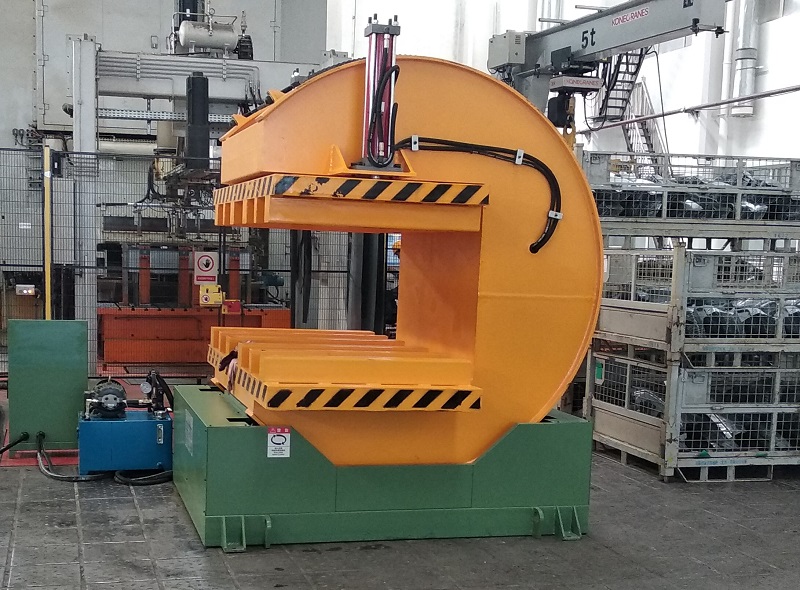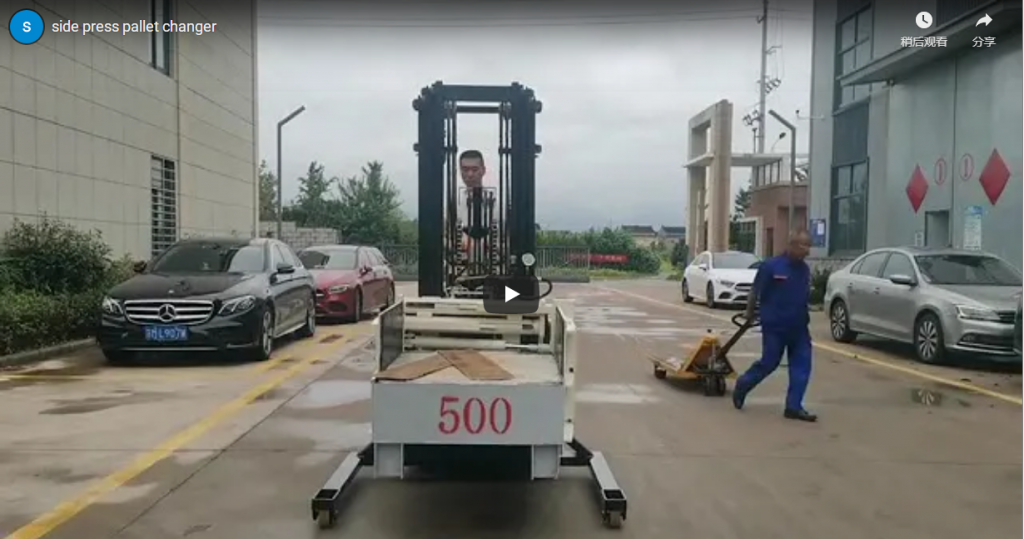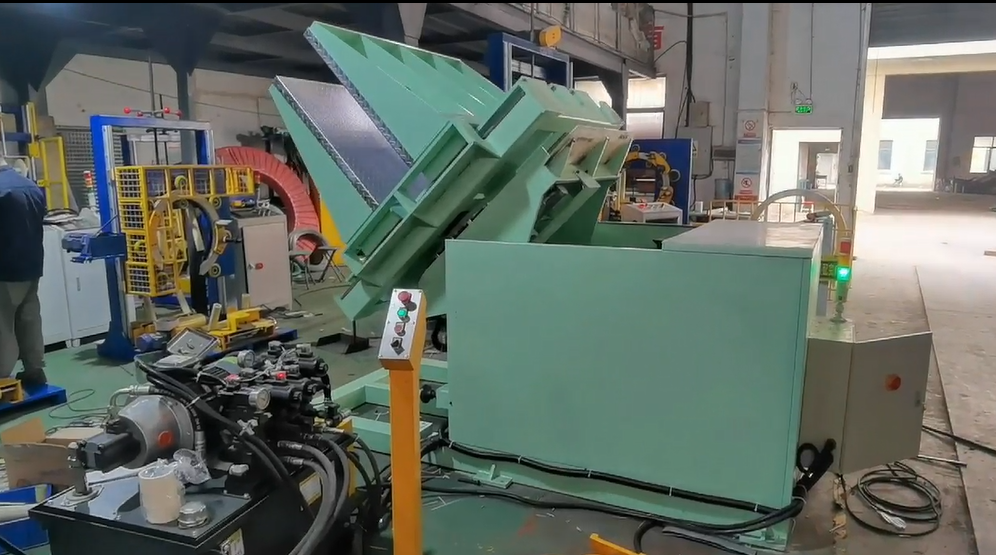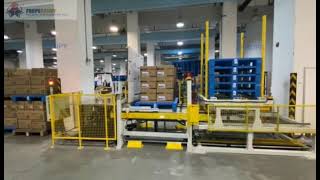FHOPE developed a mobile-type pallet inverter designed to facilitate the safe and effortless rotation of pallets and steel sheets. This well-engineered equipment guarantees reliable performance, even in demanding environments, thanks to its advanced features and sturdy construction. Mobility feature allows for easy maneuverability within the workspace, enabling operators to transport and position the inverter wherever it is needed.
Specifically tailored for molding and steel sheets, this pallet inverter has the capacity to handle heavy loads and accommodate various sizes and shapes of pallets and sheets. Precision-engineered design ensures secure clamping and controlled rotation, minimizing the risk of material damage during the inversion process.
Mobile-type pallet inverter from FHOPE offers numerous advantages. It enhances operational efficiency by streamlining material handling processes, reducing the need for manual labor, and increasing productivity. It improves workplace safety by reducing the potential for injuries associated with manual lifting and rotating of heavy loads.
FHOPE be renowned for its commitment to delivering quality products and ensuring customer satisfaction. Their pallet inverters are manufactured using high-quality materials and undergo rigorous testing to ensure durability and optimal performance. The company also provides comprehensive after-sales support, including maintenance services and readily available spare parts.
FHOPE mobile-type pallet inverter for molding and steel sheets is a dependable and efficient solution for industrial material handling needs. Its mobility, robust construction, and specialized features offer a convenient and secure approach to handling pallets and sheets, ultimately enhancing productivity and workplace safety.
https://www.fhopepack.com/pallet-inverter/




